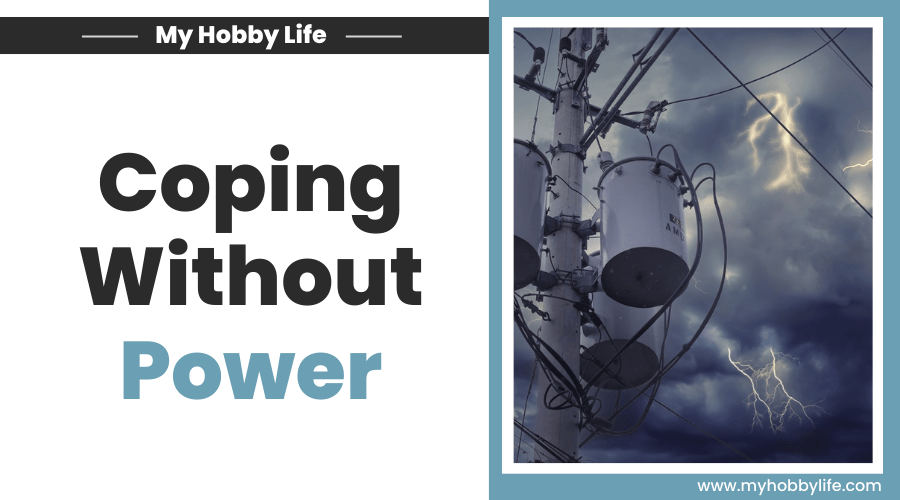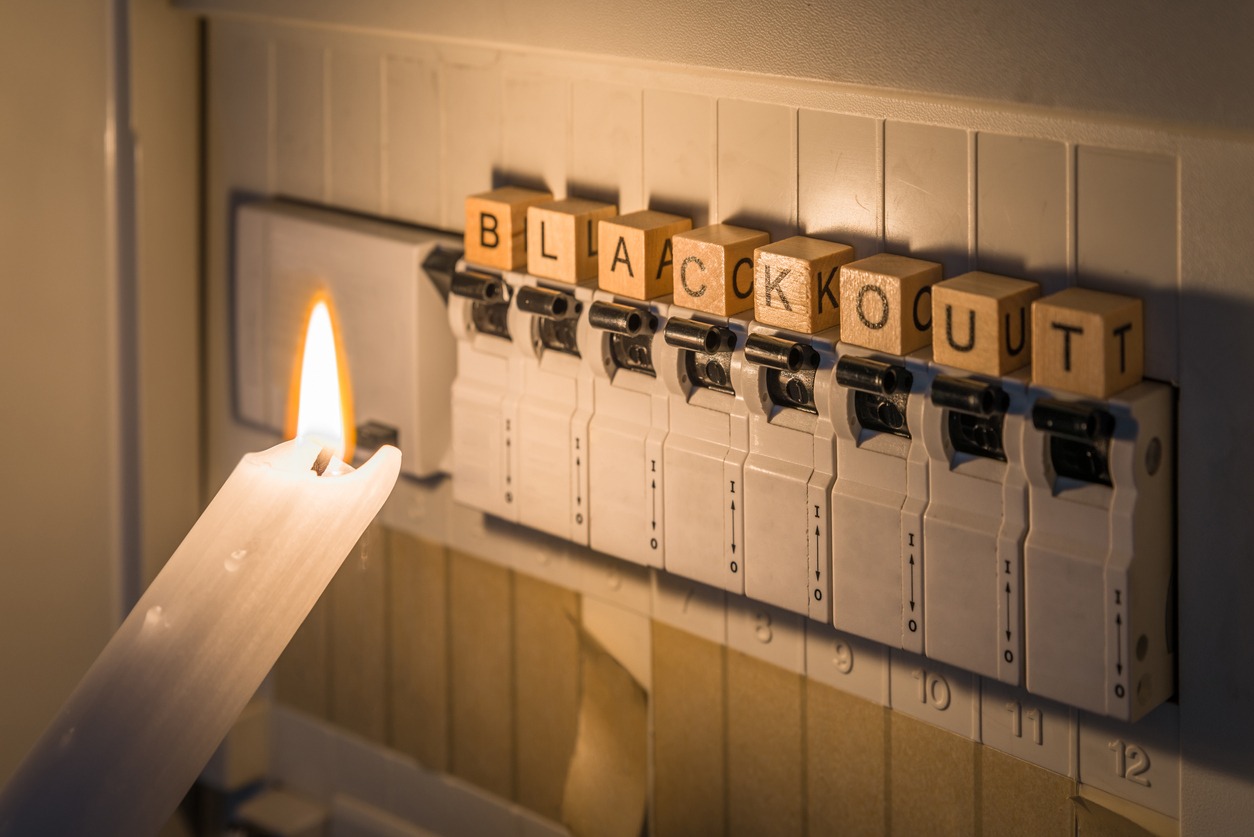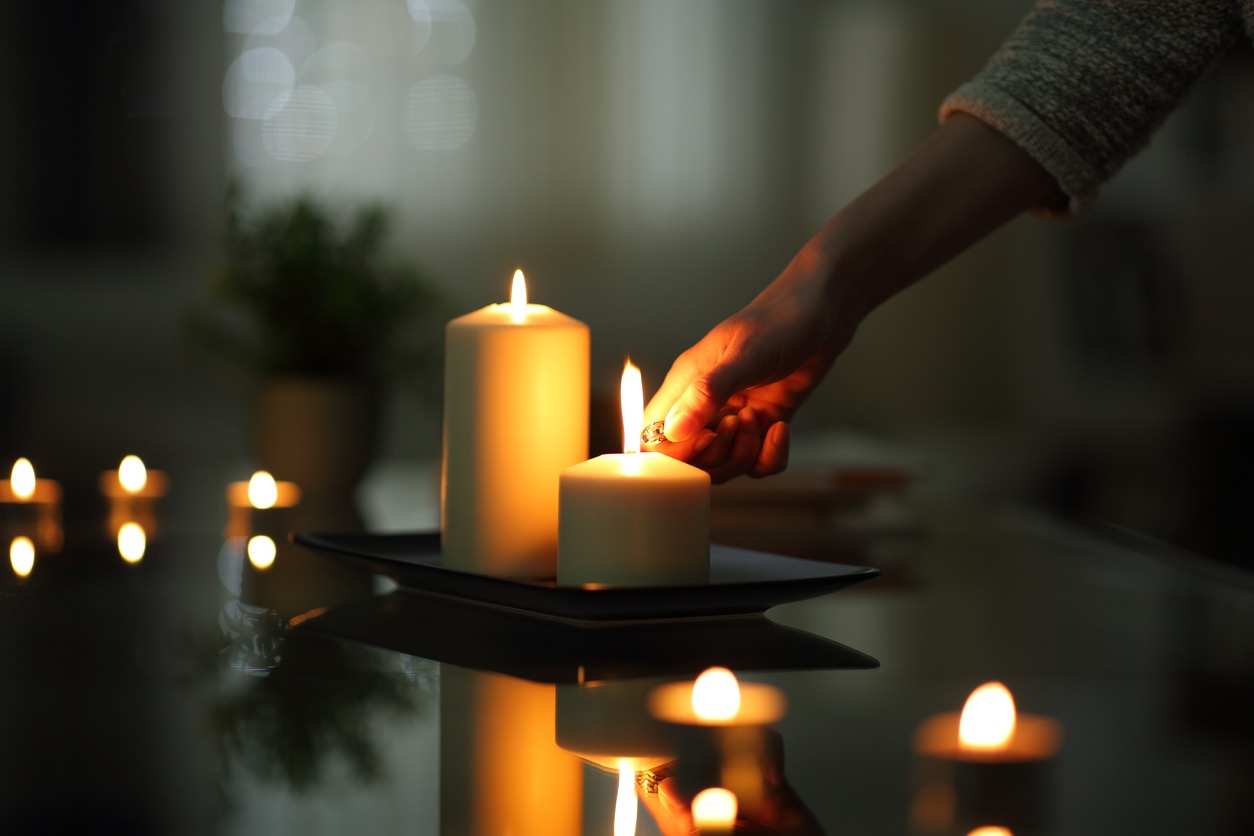Being a prepper still requires the use of computers and electricity to obtain news and other crucial information. However, it is tough work that cannot be fully accomplished by constructing or acquiring power-producing equipment. You will need to find different solutions to meet your fundamental needs without electricity.
Surprisingly, a lot of the techniques you can employ right away are less expensive, more practical, and will assist you in achieving crucial objectives both now and in the post-crisis era. We hope that these suggestions provide you with practical information on how to live without power or possibly inspire you to begin the process of entirely going off the grid.
What to Expect When There Are Power Outages
When you experience a prolonged power outage, one of the first things you come to notice is how dependent you have become on it. The ability to store and prepare food, use medical services, communicate, use computers to conduct financial activities, and operate the gas pump at the neighborhood station all depend on electricity.
How to Get Ready in Case You Have to Live Without Electricity
There is no power. All of a sudden, you are disconnected. Without the right equipment, this situation might be uncomfortable for a day, a week, or even longer. Having a way to live off the grid if necessary is crucial, regardless of whether the outage was brought on by a storm or a system malfunction.
1. Water
The most crucial thing is water. A human can go for more than a month without food, but only two weeks without water. Most people take their tap water for granted, but if the power goes out, it may not be available at all. Even if it is running, it may be unsafe to drink. Those who use electric stoves may be unable to boil them for safety reasons. A good supply of water means one gallon per person each day, so a household of four should have 28 gallons on hand. Remember that water ultimately goes bad, so stored water should be used and replaced regularly for the best effects.
2. Food
Even while humans can go without food for a long, their bodies become weaker and their chances of survival are reduced. The greatest food is that which stores well for a long time, but even with that, it is a good idea to use the oldest and replace it with fresh frequently. Meat jerky, granola bars, trail mix, canned non-cooking foods preferable, with a pull-tab top; if not, make sure to have a can opener on hand, freeze-dried foods, and packets of things like soups, beverages, oatmeal, and other things that can be used with just water are some useful possibilities. Remember that any household pets will require food as well, as keeping them fed will deplete the family’s supplies.
3. First-Aid Kit
Having a first-aid kit is necessary. While it is always possible that first aid won’t be required, the likelihood that it will is high. Having the tools to treat small wounds or injuries is crucial because doctors and hospitals are unlikely to be accessible in such a situation.
4. Survival Tools
A multitool and pocketknife, candles, matches, flashlights, batteries, duct tape, a can opener, camping dishes, a sewing kit, writing implements and paper, and similar items are all essential for basic survival. The precise list will vary based on the requirements of each family.
5. Generator
If there is a generator accessible, it can be utilized outside to power some appliances and charge electronics.
Tips for Dealing with Power Outages
Fortunately, there are things you may take to mitigate the effects of prolonged power outages. While not all of them will apply to your situation, these concerns are common.
1. Cooking
In reality, cooking shouldn’t even account for a significant amount of your electric expenditure. There are several ways to cook without electricity, and many of them only use the sun as a fuel source.
- Solar Cooker: A solar cooker is an appliance used to bake, fry, and cook meals using just the sun’s energy. The solar cooker comes in a variety of designs, but they all share the use of solar energy rather than any fossil fuels to prepare food. Long relegated to middle school science fairs and third-world disaster aid, the solar cooker was once thought to be too slow and impracticable to effectively cook food in any reasonable amount of time. However, new developments in material science have significantly slashed the amount of time it takes to prepare meals in a solar cooker, making it a genuine alternative to traditional ovens.
- Thermos Cooking: A thermos can be an excellent way to cook a variety of slow-cooking items during an emergency where power and gas may be difficult to come by. Cooking staples like rice and beans can take hours and consume a significant amount of fuel, which is typically not an option during an emergency. If you’re cooking something that takes a long time to cook, using a thermos can be a terrific method to conserve that expensive fuel. The idea of cooking with a thermos is somewhat similar to that of using a crockpot. With only the fuel needed to boil the first water, you can simmer meals for a very long time.
- Gas Stove: Even if a gas stove is a necessary component of the kitchen, why is it that some people are unfamiliar with its use? Well, using a gas stove can be unsettling, especially the first few times. But as time goes on, technology likewise gets better. Modern gas stoves typically incorporate an electric igniter that can greatly simplify the procedure and can even be operated without electricity.
2. Lighting
There are various alternatives to utilizing commercial power to light your home, even though you might be used to just flicking a switch.
Candles
One of the first options for emergency lighting is frequently a candle. They are simple to obtain, never expire, and are simple to use. However, because they have an open flame, they are also dangerous. If you want to use candles during a power outage, be sure to have the appropriate non-flammable holder for each type of candle.
Flashlights
Everyone owns at least one flashlight, but how well-maintained is it? Batteries deplete over time; therefore, it could be necessary to check if the flashlight has been sitting unused for a year. Even if the batteries are in good condition, an extremely old flashlight may not be very reliable or brilliant. Make sure each room has a reliable flashlight. Being in the midst of a power outage while using broken flashlights is not fun.
Oil Lamps
Another excellent alternative for lighting your home without electricity is using oil lamps. Kerosene, lamp oil, olive oil, and even animal fat can be used to power them. Due to the potent odors that kerosene emits, you must be careful to burn it in a well-ventilated space, which isn’t always possible in the winter.
3. Utilizing Solar Energy
Open the curtains on windows during the day to let in as much light as you can. The sun can increase the temperature in your house by several degrees during the day. You can also charge your solar-powered tools and appliance for extended use. The windows should be covered with thick drapes at night to assist keep the heat inside and keep your house as cozy as possible. In the summer, you might do the opposite to keep your home cool until the power is restored. Open the windows at night to allow in as much cool air as you can, and then draw the curtains during the day to block the light.
4. Having Supplies on Hand
A few goods on hand will enable your family to survive prolonged power outages. Be sure to keep electric lights or flashlights on hand at all times, along with enough batteries to power them for several days. Additionally, you might want to stock up on non-perishable dry food items, a radio, and candles.
5. Unplug Appliances
When power is restored during an outage, there may be a power surge that damages electronics and appliances. Unplug your computers, TV, and microwave if the power goes off. Wait a few minutes after the power is restored before connecting your devices back in. Since freezers and refrigerators are made to stop cold air from leaving, they frequently keep food fresh even when the power is out. When you open the door, part of that chilly air escapes, so keep it closed unless you need anything. You might want to think about covering your equipment with blankets to improve insulation.
The majority of people are unprepared for a power loss that lasts longer than a few hours. At the same time, it is not out of the question that a situation could result in a power outage lasting a week or two. This occurs regularly in several locations around the world. Being ready for such a situation entails being ready for any number of disasters and calamities that may occur.


